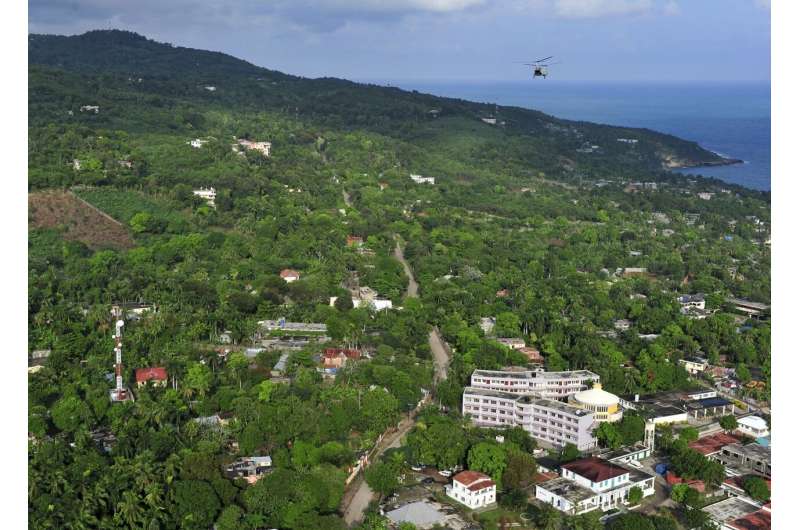
The United Nations warned Thursday of a possible explosion of cholera cases in crisis-wracked Haiti.
The international body called for the creation of a humanitarian corridor to ease a blockage of the country’s main fuel import terminal so as to get services running again and make clean water available.
Haiti announced Sunday its first cases of cholera in three years, with seven people dead of the disease.
Eleven cases have been confirmed, and there are another 111 suspected cases, but the real numbers could be much higher, said Ulrika Richardson, UN resident and humanitarian coordinator for Haiti.
Speaking from Haiti via video, she said that for now, the cases seem to be limited mainly to the capital Port-au-Prince.
“With the current conditions in Haiti, and if not all the good conditions are met, we are actually in for quite an exponential if not explosive increase of cholera cases,” she said.
“One could even say that perhaps the conditions are there for a perfect storm, unfortunately.”
Richardson said “the numbers (of infected) could be much higher.”
Tests were underway abroad to determine whether it was the same strain of cholera as the one that killed more than 10,000 people from 2010 to 2019.
‘Killing people’
Since the government announced fuel price hikes on September 11, already unstable and destitute Haiti was hit with riots, looting and demonstrations.
And since mid-September, the country’s largest fuel import terminal, in Varreux, has been controlled by powerful armed gangs.
“That means that the whole country is running short of fuel,” said Richardson. So some hospitals and other health facilities are closing down, and garbage is piling up in the streets.
Water distribution has been interrupted, which is dangerous as clean water is essential for fighting a cholera epidemic, because the bacteria that causes it is water-born, Richardson explained.
The United Nations and other humanitarian organizations made an appeal Thursday for the creation of a humanitarian corridor to allow for the release of fuel at the Varreux terminal and meet people’s urgent needs.
The government must do everything it can to unblock the fuel terminal, said Richardson.
And the gangs holding the terminal must know, she said, that “this is killing people, literally killing people.”
Richardson called on foreign powers to assist Haiti in strengthening its security forces, “which are apparently not sufficient to unblock the terminal.”
Top US diplomat Antony Blinken, in Peru for a meeting of the Organization of American States, said, “We commend the efforts of the Haitian National Police, who have been working tirelessly to try to keep the peace.”
“But they need our help. They need our continuing support.”
In a television address Wednesday night, Prime Minister Ariel Henry had appealed for international “friends of Haiti” to help defang armed gangs that he said have taken the country “hostage.”
Speaking at a Security Council meeting in late September, Haiti’s UN envoy Helen La Lime said that the new violence—five years after the departure of UN peacekeepers—is testing the Haitian police, which receives UN support to strengthen its capacity.
China has called for an embargo on the transfer of small arms to gangs in Haiti. The United States and Mexico, which drafted a resolution in July calling on states to ban the transfer of small arms, said they are working on a new text.
Source: Read Full Article
